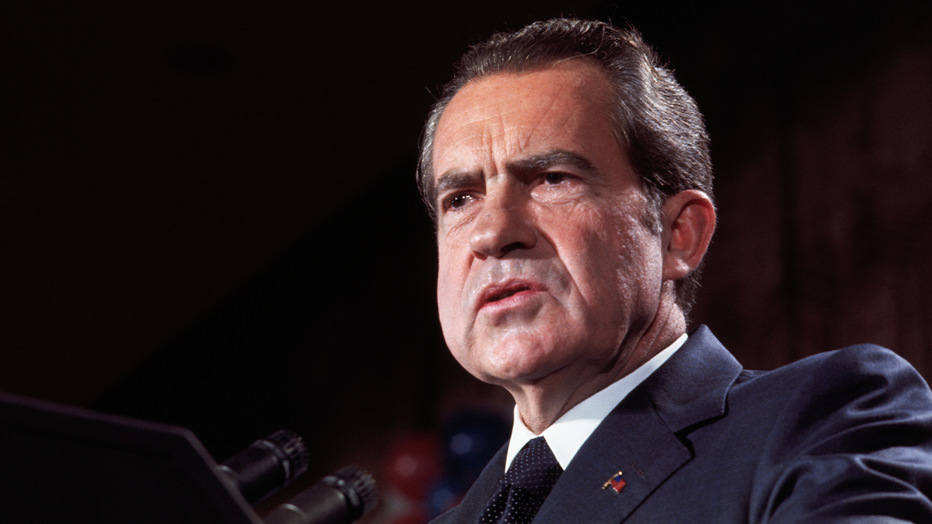Minnesota man uncovers Nixon tapes: Marijuana 'not addictive and dangerous'

How did Nixon really feel about drug use?
A Minnesota man has found evidence that President Richard Nixon who launched the war on drugs, was skeptical about the dangers and punishments for marijuana users. FOX 9's Corin Hoggard has the story.
(FOX 9) - A Minnesota man has uncovered evidence that the president who launched the War on Drugs was privately skeptical about its dangers and punishments for marijuana users.
Richard Nixon’s Oval Office tapes reveal his hidden beliefs.
Kurtis Hanna is a drug policy lobbyist here at the Capitol, so he likes to know everything about how we got to this point in the war on drugs. And he found a doozy.
Background
The War on Drugs launched in earnest during a presidential press conference 53 years ago.
"America’s public enemy number one in the United States is drug abuse, President Nixon said in a June 1971 press conference.
Nixon called for an all-out offensive not long after signing the Controlled Substances Act, which made marijuana a Schedule I narcotic, which lumped cannabis with heroin and LSD in the most severe classification, reserved for substances "with no currently accepted medical use and a high potential for abuse."
Uncovered recordings
But by 1973, recordings at the White House revealed Nixon didn’t fully believe in what he’d done.
"I know nothing about marijuana," he told visitors to the Oval Office. "I know that it is not addictive and dangerous."
"I definitely was, I think, as surprised as anybody that he had a personal position that was contrary to what his public position was," said Minnesota drug policy lobbyist Kurtis Hanna.
He discovered Nixon’s private thoughts while sifting through about 40 hours of taped conversations in the Oval Office.

President Richard Nixon makes victory speech at a rally shortly after being elected to serve a second term by a landslide in the November 7th Presidential election.
What did Nixon say?
Nixon specifically called out punishments in some states as "ridiculous", but said he didn’t speak about it publicly anymore.
Purely political motives drove that decision, according to Will Cooley, who’s writing a book on Nixon and the war on drugs.
"His constituents thought that marijuana was dangerous and done by deviant people," said Cooley, a history professor and policy director at the Minnesota Justice Research Center. "So he's responding more to what his voters want than what he actually believed. Richard Nixon used a lot of alcohol in his life and even in these tapes, he talks about the difference between a martini and marijuana and saying, actually, a martini is probably just as dangerous. But we've never been able to have that conversation in the United States."
Instead of a nuanced national conversation, 50-plus years of prohibition and punishment resulted, unevenly affecting minorities and people with lower incomes.
But the war seems to be winding down, at least as it’s mounted against marijuana.
And Nixon’s own words could land the final blow in the battle.
"I definitely hope that it changes the hearts and minds of individuals that sort of believed that Nixon was operating on good faith and actually wanted this to be the law of the land," said Hanna.
The Drug Enforcement Administration, which Nixon launched a couple of months after these recordings, will hold a hearing in December on moving marijuana to Schedule III, so it would still be illegal federally, but with lesser punishments.
More
The full tapes are available online. You can click here and here to listen to more.

